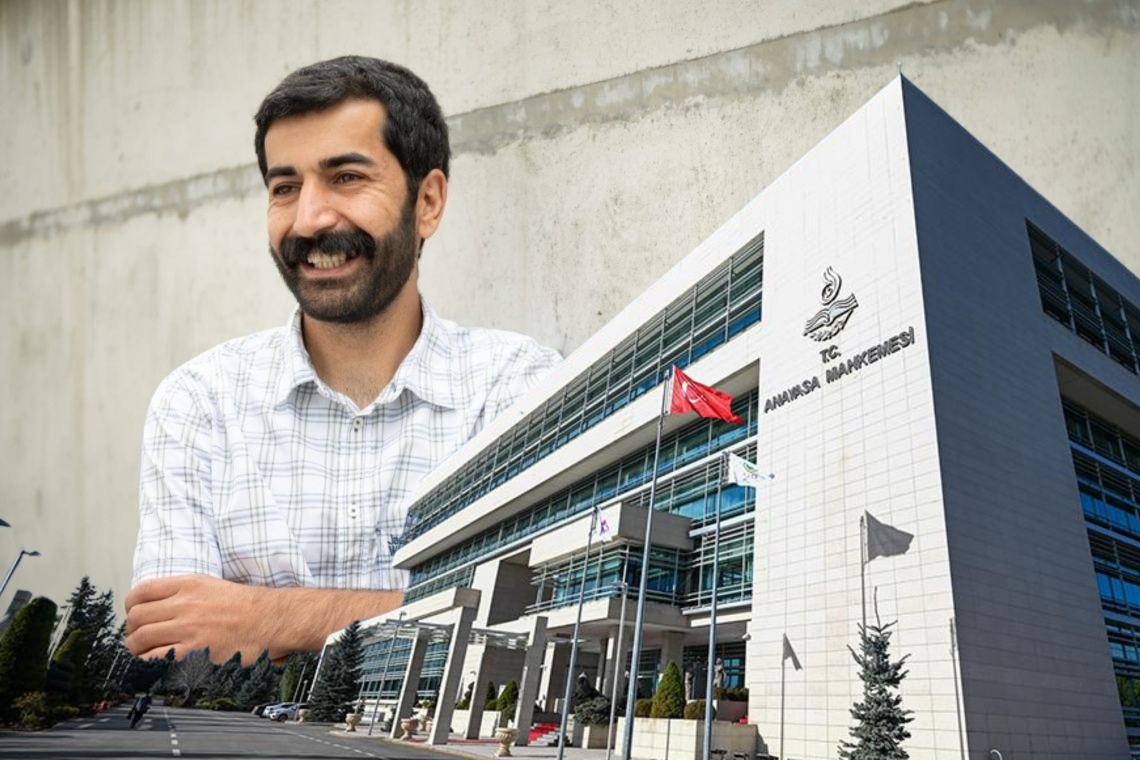Nedim Türfent, a reporter and English-language news editor for the now-shuttered Dicle News Agency (DİHA), was arrested in 2016 on charges of “membership in an armed terrorist organization.” Thirteen months after his arrest, an indictment was prepared. He was later sentenced to 8 years and 9 months in prison. In 2019, the Court of Cassation upheld the conviction. Since then, Türfent has continued his journalism and writing from Van High-Security Prison in eastern Turkey.
On Dec. 7, 2021, an academic affiliated with New York University sent a note to Türfent via his lawyer regarding the English translation of Türfent’s works. The prison administration confiscated the notes, claiming they were not related to his legal defense. When Türfent’s lawyers objected to the seizure, the Van Chief Public Prosecutor's Office submitted an opinion to the Van Execution Judgeship, asserting that the documents were unrelated to Türfent’s defense and should be seized. The prosecutor also argued that if the notes were allowed to leave the prison, they could potentially leak information about the prison’s operations, allegedly endangering its order and security.
The prosecutor's office not only demanded the confiscation of the notes but also requested that Türfent’s meetings with his lawyers be recorded, monitored for three months, held in the presence of a prison official, and limited to one hour per week.
The Van Execution Judgeship accepted the prosecutor’s requests and ruled that the notes sent to Türfent be confiscated, his meetings with lawyers be restricted to one hour per week, the conversations be recorded, and a prison staff member be present during those meetings.
On March 9, 2022, the MLSA Legal Unit filed an individual application with the Constitutional Court challenging the Execution Judgeship’s decision. In the application, they emphasized that Türfent is an internationally recognized journalist and writer, and that seizing documents and information sent to him from abroad violated his fundamental rights and freedoms, especially his freedom of the press and expression. They also argued that limiting and monitoring his legal meetings breached the confidentiality of attorney-client communication and amounted to a serious infringement on his right to respect for private life.
On July 30, 2025, the Constitutional Court issued its ruling on the application submitted by MLSA on Türfent’s behalf. It found that the seizure of the notes and the restriction of lawyer meetings violated Türfent’s freedom of the press and expression. The court ordered the state to pay Türfent 45,000 Turkish liras in non-pecuniary damages and declared that its decision established a guiding principle recognizing the importance of information exchange between imprisoned journalists and the outside world.
In its ruling, the Constitutional Court stated that the notes sent to Türfent concerned the translation of his writings into English, and neither the prosecutor’s office nor the Execution Judgeship provided any concrete justification as to how the notes could pose a threat to prison security. The court also noted that Türfent, as a journalist, is followed by academics and journalists abroad, and concluded that confiscating the notes and restricting his legal visits infringed upon his freedom of expression and his right to carry out his professional activities.
The Constitutional Court ruled that both Türfent’s freedom of expression and his right to respect for private life had been violated, ordering the payment of 45,000 Turkish liras in non-pecuniary damages and 30,000 Turkish liras in attorney’s fees.
MLSA Co-Director Veysel Ok: “Journalism does not end when you go to prison”
Emphasizing that journalism does not cease when a journalist is incarcerated, Veysel Ok said:
“Journalists continue to practice journalism in prison using all available means, even under limited conditions. This ruling is precedent-setting in that it establishes that the flow of information and documents needed by imprisoned journalists to continue their work cannot be obstructed.”



